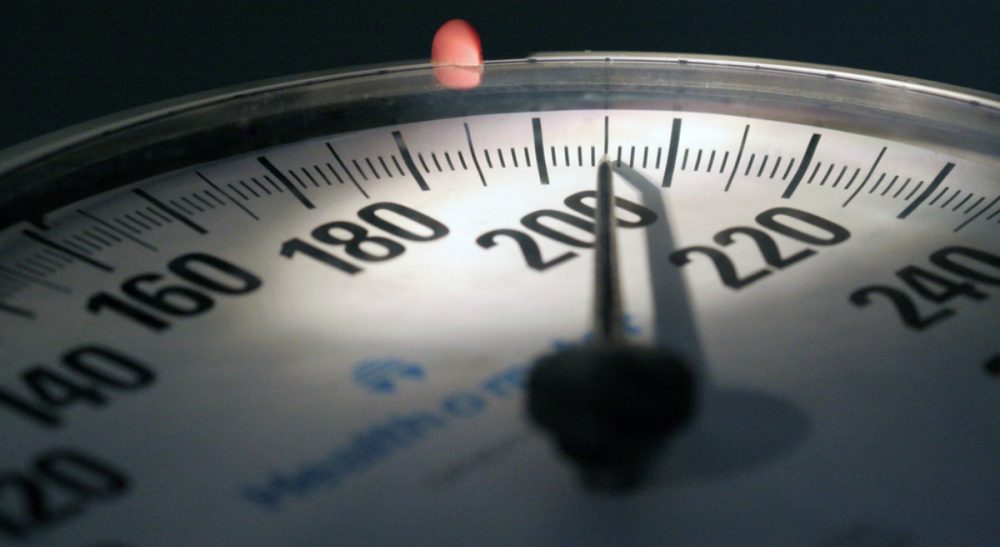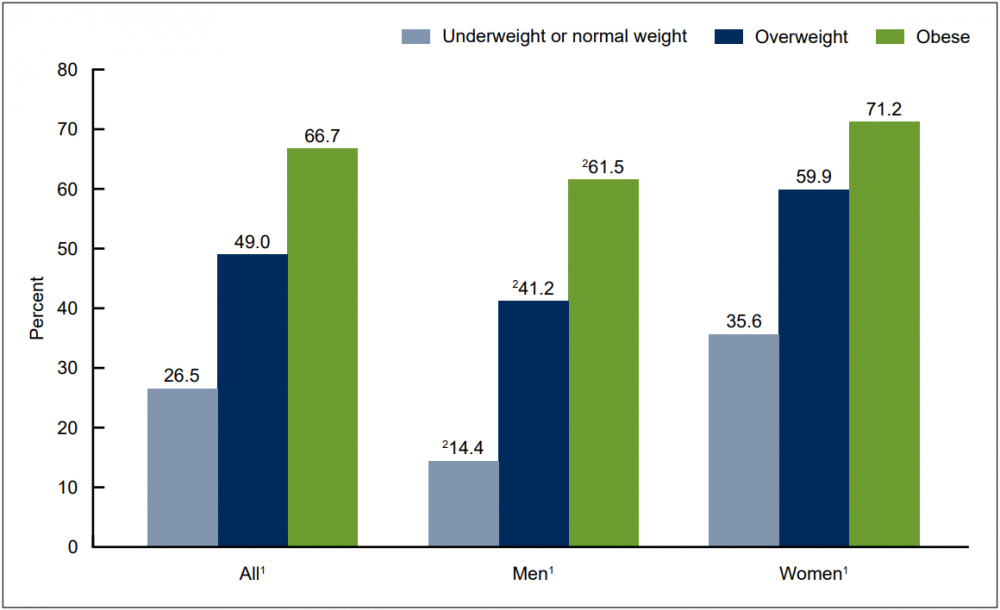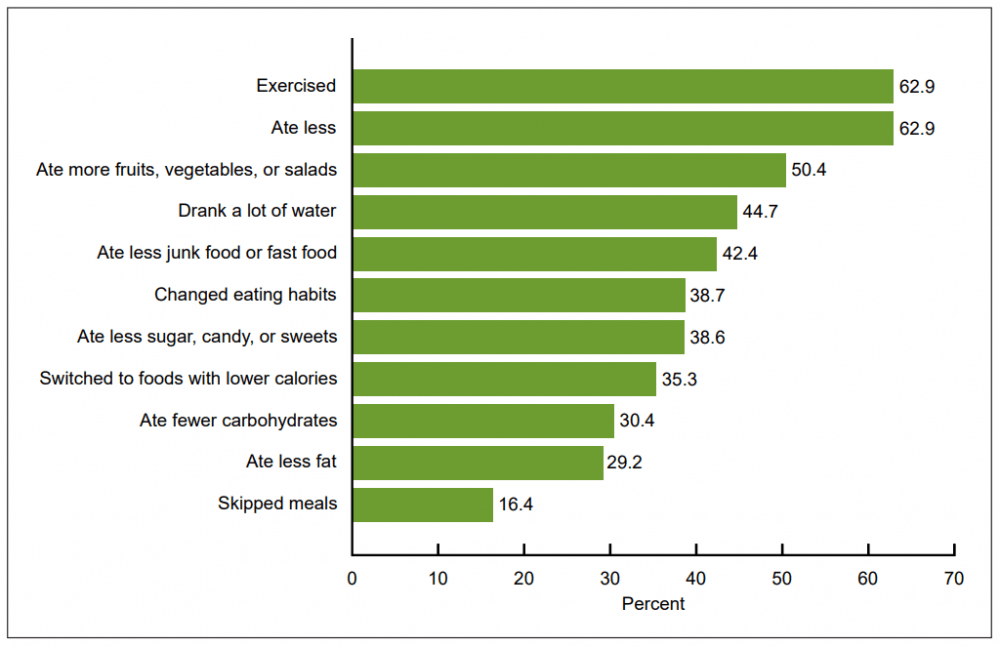Advertisement
Half Of Americans Are Trying To Lose Weight, Including Many Who Are Not Overweight, CDC Reports

Americans are not just worried about their weight — they’re doing something about it.
Almost half (49.1 percent) of adults made an effort to lose weight within the calendar year, according to data from 2013-2016 released in a report from the Centers for Disease Control and Prevention.
The first-of-its-kind report analyzed nationally-representative data looking at who tried to lose weight, and how they went about their attempts.
Here are the key takeaways:
More women are trying to cut weight than men
Across all ages, incomes, and race/ethnicity categories, more women (56.4 percent) tried to lose weight than men (41.7 percent). For every five women age 40 to 59, three (60.2 percent) made an attempt to trim pounds at some point over the previous year.
The largest number of Americans trying to lose weight are obese
Almost 40 percent of American adults are obese. And according to the data brief, two-thirds of these individuals tried to lose weight within the previous year. The brief states that "66.7% of adults with obesity, [and] 49.0% of overweight adults ... tried to lose weight." However, attempts were not limited to these groups — more than 1 in 4 deemed to be "underweight or normal weight" still tried to cut pounds.

Fewer Asians made weight loss attempts
While the percentage of black, white and Hispanic adults trying to cut weight were nearly identical (48, 49.4, 49.1, respectively), fewer Asians reported attempted weight loss (41.4 percent). Asian women were the only reported racial and ethnic group where less than half (44.8 percent) of women reported trying to lose weight at any point within the year.
More wealthy Americans made weight loss attempts
According to the report, “the percentage of adults who tried to lose weight increased with family income level.” The data show that 53.7 percent of adults categorized as possessing higher income attempted to lose weight, while the figure stood at 42.9 percent when it came to individuals labeled as having lower income.
This trend is consistent with previous research on income and weight loss, said Dr. Marlene Schwartz, director of the Rudd Center for Food Policy and Obesity at the University of Connecticut. The difference seen in this study and in others, she said, likely has more to do with an individual's access to health-promoting resources than whether or not that individual is concerned about their health.
“Changing your eating habits is certainly a lot easier when you have enough money to buy the food you need,” she said.
How Americans try to lose weight

The above graph shows the most common ways Americans tried to lose weight. A large majority of those surveyed (88.3 percent) reported using more than one method. While unhealthy weight control behaviors like laxatives and diet pill use were also reported, they were far less common. Only methods used by more than 10 percent of respondents were included in the graph.
"Most people were doing things ... that I would encourage all my patients to do," says Dr. Holly Gooding, assistant professor of medicine and pediatrics at Harvard Medical School. She added that exercising and eating fruits and vegetables are healthy measures for all — even those not trying to lose weight — and heavily cautioned against skipping meals.
Overall, the data show that Americans recognize the health risks of excess body weight, Schwartz, of the Rudd Center, said. However, she stressed that measurements like BMI don't capture the whole story.
"What people need to realize is obesity is not a behavior," she said, adding that bodily measurements alone "don't tell us what somebody is doing" to better their health.
But "from a public health perspective, in terms of trying to raise awareness of the health consequences of obesity," Schwartz said, "I think this is encouraging."